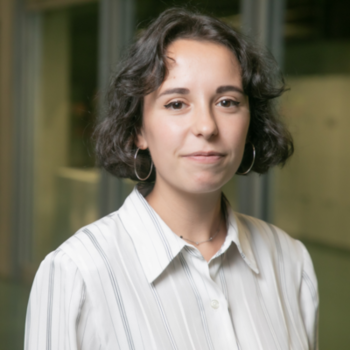M.Sc. María González Viegas
During my biophysics bachelor and master, I learned how different methodologies provide contrasting information and that none of them is perfect. Therefore, I deeply believe in the synergy behind interdisciplinary research. That is the reason why I decided to do a PhD combining experimental and computational methods, namely vibrational spectroscopy and computational structural biology.
I joined the AG Heberle to do my PhD in 2023 as part of the EC2/BIG-NSE PhD programm, where I study a bifurcating electron transfer flavoprotein using vibrational spectroscopy and multiscale molecular simulations.

Department of Physics
Institute of Experimental Physics
Experimental Molecular Biophysics
PhD Candidate
Room 1.1.36
14195 Berlin
María González Viegas, born 1998 in Sevilla, Spanien.
2016-2020 Bachelor of Science, Humboldt Universität zu Berlin
2019-2022 Master of Science, Humboldt Universität zu Berlin
Flavoproteins account for the most versatile chromophore in nature - flavin. These proteins play essential roles in very diverse areas such as photoreception, circadian rythm, and electron bifurcation, thanks to how tunable flavin cofactors are.
In the proteins I am studying, bifurcating electron transfering flavoproteins, two chemically identical flavin cofactors show contrasting physicochemical properties due to the tunning of the protein environment around them.
My research focusses on the study of the interactions that shape these flavins' reactivities. For that purpose, I am going to combine diverse experimental vibrational methods (light-triggered difference FTIR, spectrochemical titrations, and vibrational Stark spectroscopy) with multiscale molecular simulations (Molecular Dynamics and hybrid Quantum Mechanics/Molecular Mechanics).